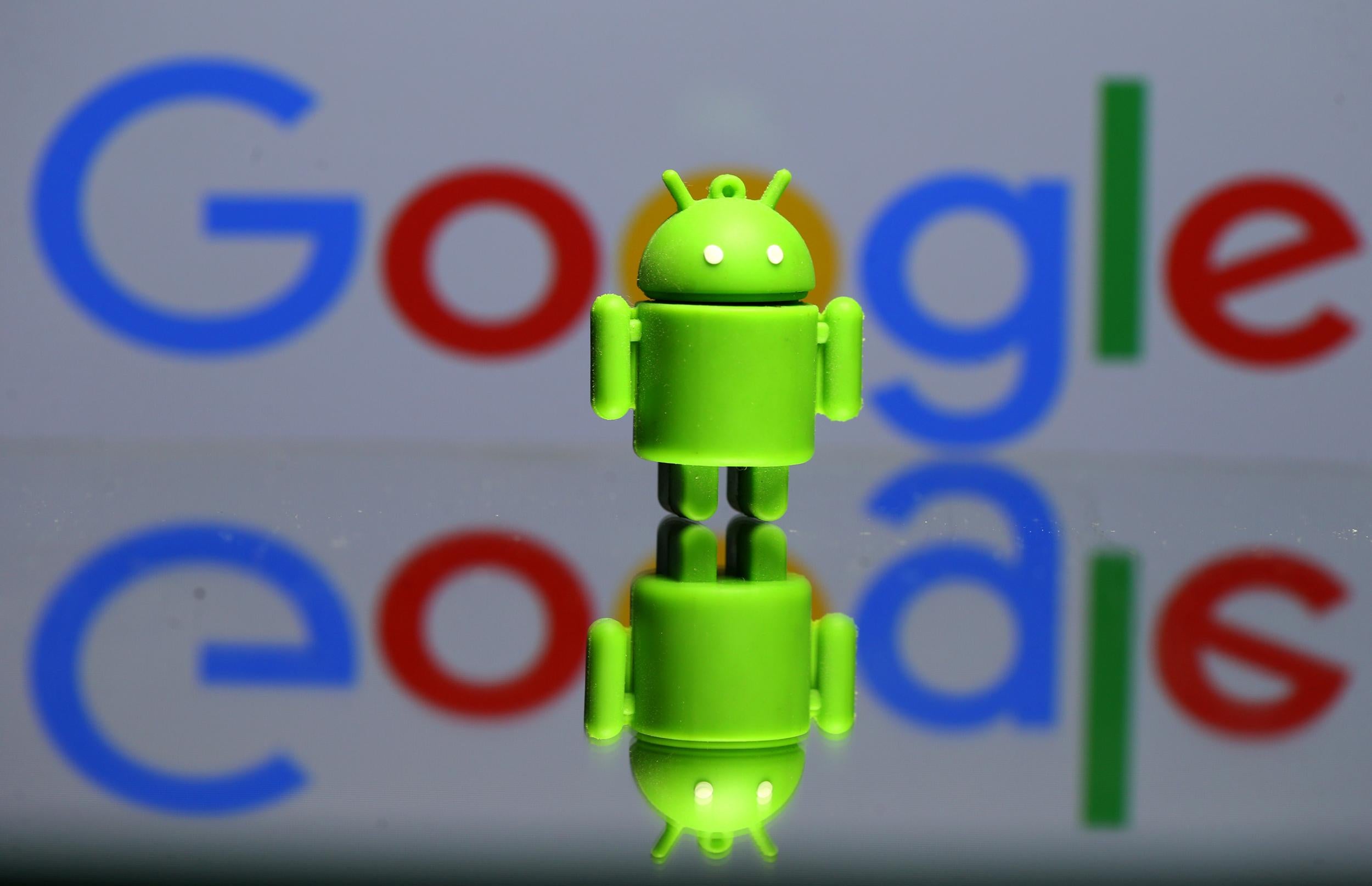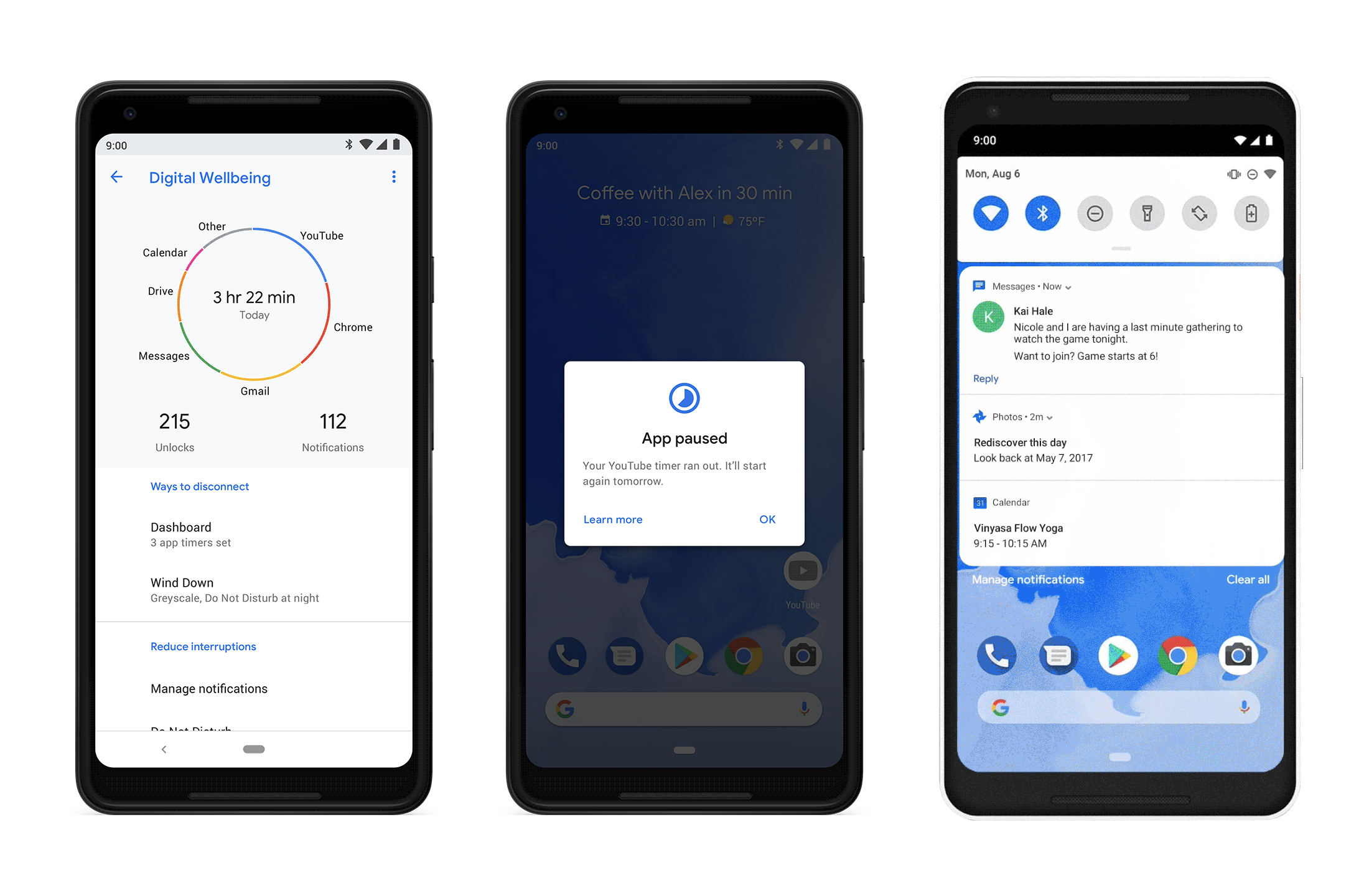Android Pie: Five best features that will make you want to download Google's latest OS
Android 9 hopes to improve your sleep and protect you from spies

Your support helps us to tell the story
From reproductive rights to climate change to Big Tech, The Independent is on the ground when the story is developing. Whether it's investigating the financials of Elon Musk's pro-Trump PAC or producing our latest documentary, 'The A Word', which shines a light on the American women fighting for reproductive rights, we know how important it is to parse out the facts from the messaging.
At such a critical moment in US history, we need reporters on the ground. Your donation allows us to keep sending journalists to speak to both sides of the story.
The Independent is trusted by Americans across the entire political spectrum. And unlike many other quality news outlets, we choose not to lock Americans out of our reporting and analysis with paywalls. We believe quality journalism should be available to everyone, paid for by those who can afford it.
Your support makes all the difference.Google has launched Android Pie, the ninth iteration of its mobile operating system. It follows on from Android Oreo – both alphabetically and in its sweet/ dessert theme – yet its predecessor never achieved a significant market share.
More than 85 per cent of all smartphones sold this year run a version of Android, but less than 13 per cent of all Android phones use the Oreo OS. With Android Pie initially only available on Google Pixel phones, it is unlikely to capture much of the market in the coming weeks. But when its wider release comes later this year, a number of features could tempt people to upgrade. Here's a run-down of the top five.
'Digital Wellbeing'
Google is taking a stand against smartphone addiction, or is at least appearing to. The Digital Wellbeing tools are designed to help people use their devices less, even if this means cutting into Google's profits.
According to research conducted by the technology giant, 70 per cent of people surveyed wanted help with managing the time spent on their phones. This prompted Google to introduce features at its Google I/O conference in May that could assist its users.

They include a new dashboard designed to help people understand how much time they're spending on each app, as well as an App Timer that sets limits on the time spent on specific apps. If the limit is reached, users are locked out unless they override the function.
Finally, a Wind Down mode fades the screen into greyscale at night to help people sleep, while also initiating a Do Not Disturb mode to mute notifications before bedtime.
No microphone spying
One of the most persistent conspiracy theories of smartphone users in recent years is that Facebook and other apps are using people's microphones to spy on them. Despite plenty of evidence, Facebook has always denied that it carries out the practice and there is yet to be any definitive proof to dispute this.
Facebook CEO Mark Zuckerberg even went on record before Congress earlier this year to debunk the eavesdropping claims, claiming that the cases mentioned by Senator Gary Peters were a "coincidence."

Regardless, the developers of Android Pie decided to play it safe, introducing a software update that "restricts access to mic, camera, and all SensorManager sensors from apps that are idle."
Other security features include improved support for biometrics, such as fingerprints and facial recognition. Privacy improvements also help keep web communications more secure through the introduction of measures such as TLS (Transport Layer Security) by default.
Tailored artificial intelligence
'Artificial intelligence' is probably the most over-used words by tech companies keen to tout the advanced credentials of their devices. Google is no exception, with its Android Pie announcement headlined: "Powered by AI for a smarter, simpler experience that adapts to you."
Where Google does differ, however, is in the vast talent it employees in this area. With its acquisition of London-based AI firm DeepMind in 2014, Google is at the forefront of AI technology and has used it to great effect across a range of its products – from YouTube to Google Search.
When it comes to Android Pie, Google has used it to develop a more personalised experience for smartphone users that learns from their habits the more they use it. Android states on its website that the AI technology helps to predict a user's next task.
Sameer Samat, vice president of product management at Android, explained in a blog post: "We've built Andoid 9 to learn from you – and work better for you – the more you use it."
Better battery life
One of the most fundamental specs people judge a smartphone on is its battery. Rarely can a device stretch further than a day without a charge, so in order to squeeze every minute from the battery Android Pie includes something called "adaptive battery" and "adaptive brightness".
These adaptive features utilise the formerly mentioned AI technology to learn which apps you use most and prioritise battery usage accordingly. This means applications running in the background won't unnecessarily drain your battery.
Design to fit your phone
Since Apple introduced the 'notch' design with the iPhone X, rival device makers have rushed to imitate look of the premium device.
Flagship phones from Huawei, Asus and OnePlus all adopt the notch and Google has adapted to this new design world by introducing a mode that allows developers to "simulate a display with a cutout".
Samsung is notably absent from the list of iPhone X copycats, having mocked the awkwardness of the notch design through the medium of a haircut, but the latest version of Android may see the South Korean firm served (apologies) with a slice of humble pie.
The cutout allows device makers to maximise screen size while allowing for front-facing cameras and its ubiquity even within mobile operating systems may see it appear on a high-end Samsung smartphone in the not-too-distant future.
Join our commenting forum
Join thought-provoking conversations, follow other Independent readers and see their replies
Comments